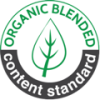Wevotex honest and organic
We love the world and we care about people. This is reflected in our projects in the field of sustainability and working conditions.
We love the world and we care about people. This is reflected in our projects in the field of sustainability and working conditions.

Cotton cultivation is bad for the environment. In addition to fertilizer and insecticide, an average of 8,000 liters of water is used for 1 kg of cotton. The Aral Sea in central Asia has practically dried up.
The trick is to use recycled fibers in such a way that it is not at the expense of longevity. Wevotex is at the forefront of the development of GRS (Global Recycle Standard) certified terry cloth.

Textile made from organic cotton. As a result, less environmentally harmful and less water use. Certified according to Global Organic Textile Standard (GOTS) and Organic Content Standard (OCS). Knowing more:


The use of a special spun polyester in sheets leads to major advantages in terms of washability, energy consumption and lifespan. The disadvantage of poor comfort of sheets with a high polyester percentage has become history. Knowing more:
The Ecotool has been developed in collaboration with Federatie Textielbeheer Nederland (FTN, the association of dutch laundries). With this web application, the environmental impact of the production and use of textile products can be calculated. Wevotex has commissioned the FTN to compare a number of conventional 100% cotton items with items further developed by Wevotex. More info:
550 solar panels with a capacity of 143 kWh per year. Enough for our own energy needs and supply to a number of households.
We use 3 principles as the basis for partnerships with our producers:
We work on the certification of our producers. In 2019, a project has started to certify 2 weaving mills in Bangladesh according to BSCI (Business Social Compliance Initiative). In 2020 this project is completed. Other producers are already certified.
Wevotex participates in the SaXcell project. A new high-quality cellulose fiber can be made from cotton waste by means of a revolutionary process. More information -->: www.saxcell.nl and info sheet: